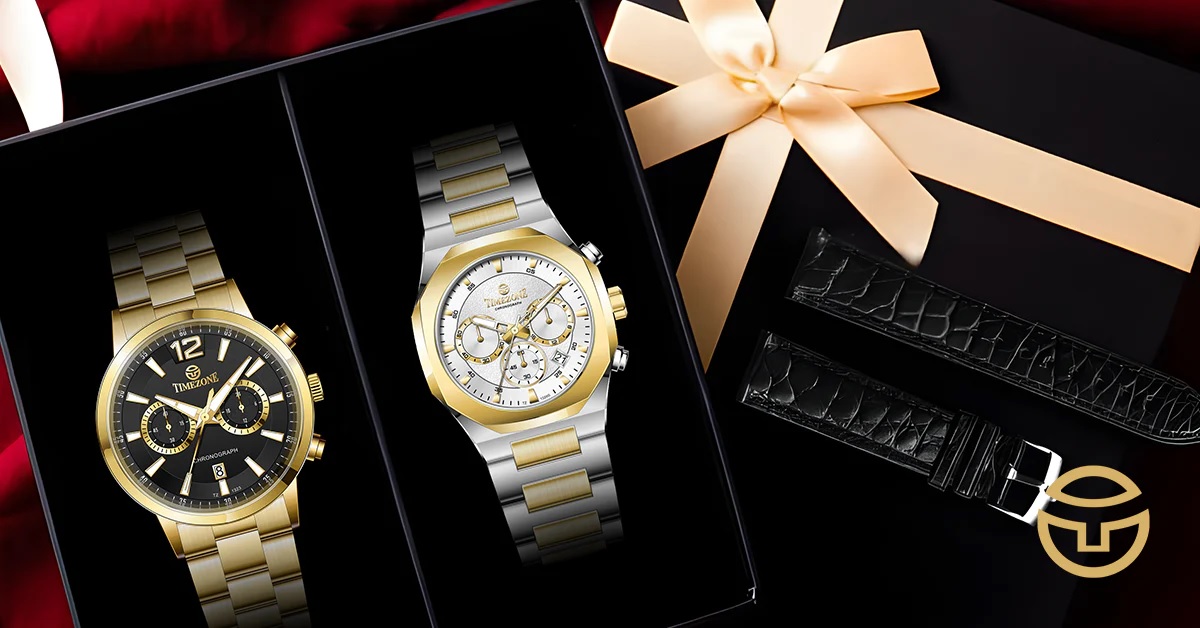
In South Asian culture, gift-giving isn’t just about presents—it’s about emotions, relationships, and deep-rooted traditions. Whether it’s Eid, a wedding, a graduation, or a career milestone, a thoughtful gift reflects love, honor, and pride. Among all the meaningful gifts exchanged across generations, gifting a watch holds a truly timeless significance.
From mens luxury watches that symbolize achievement to classic timepieces passed down as family heirlooms, watches have evolved into more than accessories—they’re symbols of respect, status, and care. But why does giving a watch matter so much in South Asia? And what does it represent across different cultures, families, and faiths?
Let’s explore the cultural and emotional depth behind gifting a watch in South Asian traditions, and why it continues to be such a cherished custom, even in today’s digital age.
Gifting a Watch: A Symbol of Time, Blessings, and New Beginnings
Watches represent the passage of time—but in South Asia, they symbolize so much more.
When you give someone a watch, you’re not just giving them a tool to track time. You’re offering:
- A blessing for a prosperous future
- A reminder of shared memories
- A token of loyalty, guidance, and love
In cultures like those of Pakistan, India, and Bangladesh, watches are seen as powerful metaphors—a way of saying “May your time ahead be successful and bright.”
This emotional meaning is especially strong during:
- Weddings – when watches are given to grooms or fathers-in-law as a mark of respect.
- Graduations – celebrating the journey from one phase of life to another.
- Retirements – honoring a lifetime of dedication and hard work.
- Religious holidays – where watches serve as graceful, thoughtful Eid or Diwali gifts.
Mens Luxury Watches in South Asian Gifting Culture
In South Asia, gift-giving is often a way to express status, pride, and family values. That’s why luxury watches for men are a go-to gift when someone wants to make a lasting impression.
These timepieces:
- Reflect prestige and success
- Signal social respectability
- Make ideal heirlooms to pass down
Popular occasions where luxury watches are gifted:
|
Occasion |
Who Receives It |
Why It’s Special |
|
Weddings |
Groom, Father, Brother |
Symbol of commitment and respect |
|
Eid / Diwali |
Husband, Son, Nephew |
Thoughtful, elegant gift that shows effort |
|
Graduations |
Son, Daughter, Cousin |
Encourages ambition, celebrates a milestone |
|
Promotions |
Employee, Business Partner |
Shows appreciation and investment in the future |
|
Retirements |
Boss, Colleague, Mentor |
Marks the end of an era with dignity and pride |
Fun fact: In many Pakistani families, giving a luxury watch to the groom is seen as one of the most respectful gifts the bride’s side can offer—symbolizing time, honor, and shared destiny.
Watches as Heirlooms: A Legacy of Time and Family
One of the most beautiful aspects of watch gifting in South Asia is the tradition of passing down watches through generations.
A grandfather’s watch might be gifted to his grandson on his wedding day. A father might give his own engagement watch to his son after graduation. These moments are full of emotion—and the watches themselves carry stories, memories, and blessings.
Why watches make great heirlooms:
- They’re durable and long-lasting.
- Their design remains classic and timeless.
- They hold emotional and financial value over time.
This practice also reflects the South Asian value of preserving family legacy and honoring those who came before us.
Religious & Cultural Nuances of Watch Giving
Gift-giving customs vary across regions and religions, but watches are one of the few items considered universally appropriate and meaningful across faiths in South Asia.
In Islamic Traditions:
- Watches are given during Eid, Nikah ceremonies, and Ameen celebrations.
- Giving a watch symbolizes Barakah (blessing) in one’s time and future.
- It’s also a Sunnah-inspired act to give valuable, useful gifts.
This wide spiritual acceptance makes the watch a perfect gift—beautiful, respectful, and filled with meaning.
The Modern Shift: Smartwatches vs Traditional Watches
Today’s younger generation may be drawn to smartwatches—but in the context of formal gift-giving, traditional timepieces still hold the crown.
Why?
- Elegance: A mechanical or luxury watch adds grace to any outfit.
- Symbolism: A traditional watch carries emotional weight and family sentiment.
- Heritage: Smartwatches get outdated quickly; a timeless wristwatch lasts forever.
Even tech-savvy millennials appreciate the blend of style, tradition, and craftsmanship a well-made analog watch offers.
Tips for Choosing the Perfect Watch Gift in South Asia
When picking a watch as a gift, especially in South Asian cultures, consider these key factors:
- Occasion: Formal events like weddings or Eid deserve premium, elegant pieces.
- Personality: Is the receiver bold, classic, or minimal? Choose accordingly.
- Strap style: Leather, metal, or rubber? Match their everyday wear.
- Watch size: Ensure it fits their wrist comfortably.
- Brand reputation: Trusted brands matter, especially for mens luxury watches.
Gifting Etiquette:
- Always present the watch in a gift box—preferably with a handwritten note.
- If gifting for a wedding, coordinate with the family traditions.
- For religious holidays, ensure the watch design is modest and respectful.
Conclusion
Gifting a watch in South Asian tradition is much more than giving someone a way to tell time—it’s a powerful expression of love, legacy, and culture. From family heirlooms to graduation milestones, watches are woven into the fabric of our most important memories.
Whether it’s a high-end mens luxury watch or a simple elegant timepiece, your gift tells a story. A story of where someone’s been, where they’re going, and all the moments that matter in between.
Because in the end, when you give someone a watch, you’re not just giving them time, you’re giving them meaning.